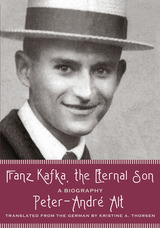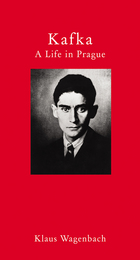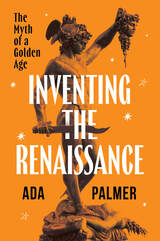
Franz Kafka remains one of the most influential writers of the twentieth century. His novels, stories, and letters are still regarded today as the epitome of the dark, fascinating, and uncanny, a model of the modernist aesthetic. Peter-André Alt’s landmark biography, Franz Kafka, the Eternal Son, recounts and explores Kafka’s life and literary work throughout the cultural and political upheavals of central Europe.
Alt’s biography explores Franz Kafka’s own view of life and writing as a unity that shaped his identity. He locates links and echoes among the author’s work, life, and surroundings, situating him within the traditions of Prague's German literature, modernity, psychoanalysis, and philosophy as well as within its Jewish culture, arts, theater, and intellectual tradition.
In this biographical tour de force, Kafka emerges as an observant flaneur and wistful loner, an anxious ascetic, an ecstatic and skeptic, a specialist in terror, and a master of irony. Alt masterfully illuminates Kafka's life not as source material but as a mirror of his literary genius. Readers begin to see Kafka’s unforgettable novels and stories as shards reflecting the life of their creator.

In Kafka's writing, Albert Camus tells us, we travel "to the limits of human thought." And in this book, the world's leading Kafka authority conducts us to the deepest reaches of Kafka's own troubled psyche, to reveal the inner workings of the man who gave his name to a central facet of modern experience, the Kafkaesque. Klaus Wagenbach, who wrote the first major critical biography of Kafka, draws upon a wealth of new and recent information to produce a concise but finely nuanced portrait of the author, an ideal introduction to this quintessential figure of modernity.
With extensive reference to Kafka's extraordinary letters and diaries, Wagenbach shows us the author of Metamorphosis and The Trial perpetually caught between the irresistible attractions of the world and his ruthless desire for solitude and isolation. It was this tension, Wagenbach tells us, that gave Kafka's writing its uncanny quality and that haunted his intense, unresolved relationships with women. And it was in this tension that both his misery and mastery inhered, making his one of the most painfully powerful voices of the experience of the twentieth century.

Drawing from a range of documents and historical materials, this is the first book specifically dedicated to the relationship between Kafka and Prague. Klaus Wagenbach’s account of Kafka’s life in the city is a meticulously researched insight into the author’s family background, his education and employment, his attitude toward the town of his birth, his literary influences, and his relationships with women. The result is a fascinating portrait of the twentieth century’s most enigmatic writer and the city that provided him with so much inspiration. W. G. Sebald recognized that “literary and life experience overlap” in Kafka’s works, and the same is true of this book.
READERS
Browse our collection.
PUBLISHERS
See BiblioVault's publisher services.
STUDENT SERVICES
Files for college accessibility offices.
UChicago Accessibility Resources
home | accessibility | search | about | contact us
BiblioVault ® 2001 - 2025
The University of Chicago Press









